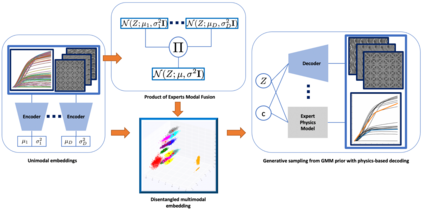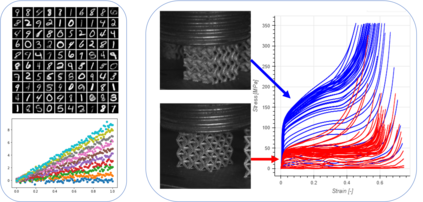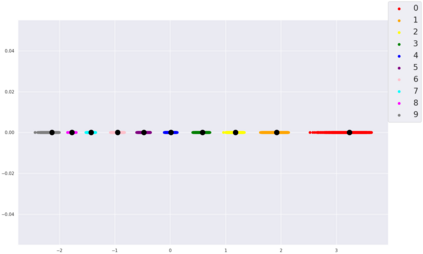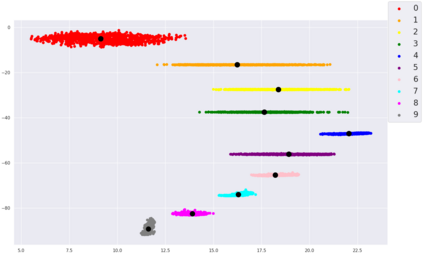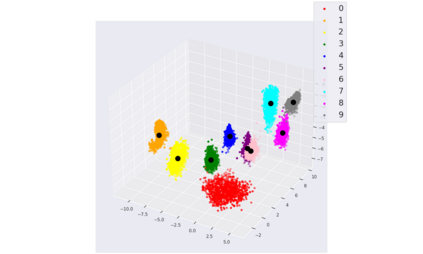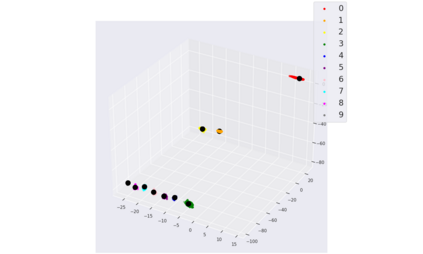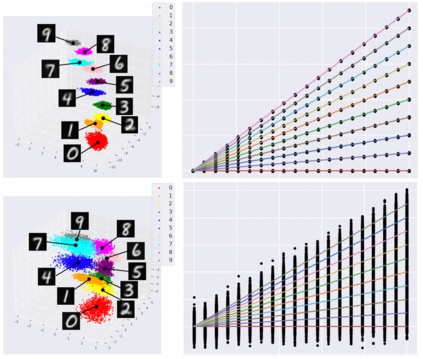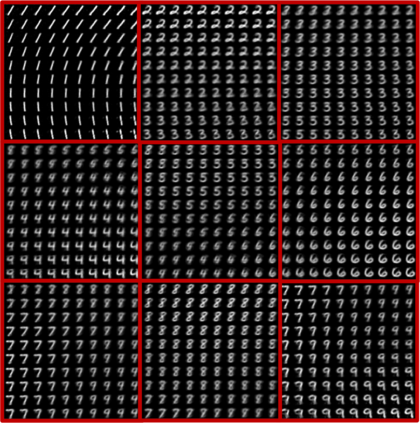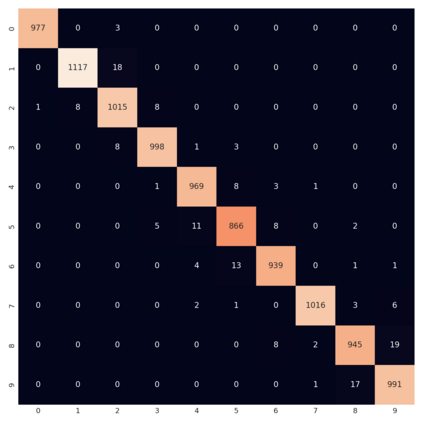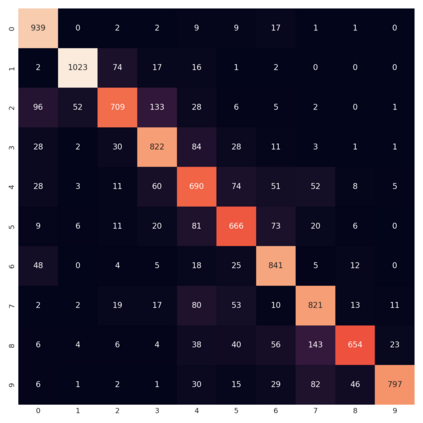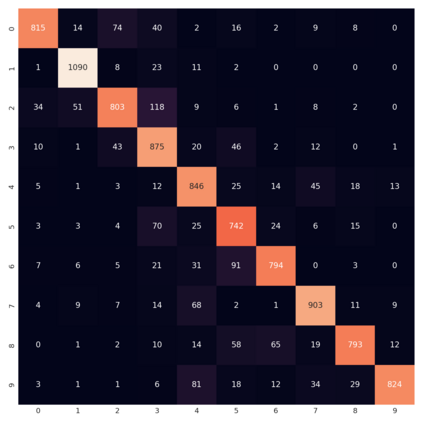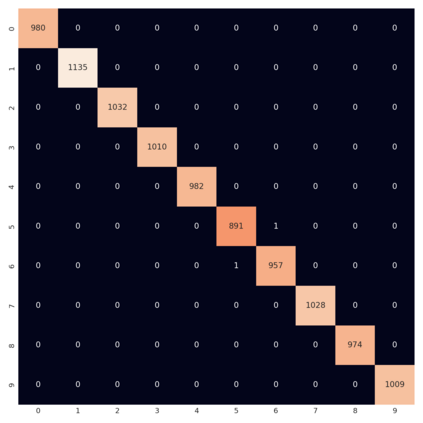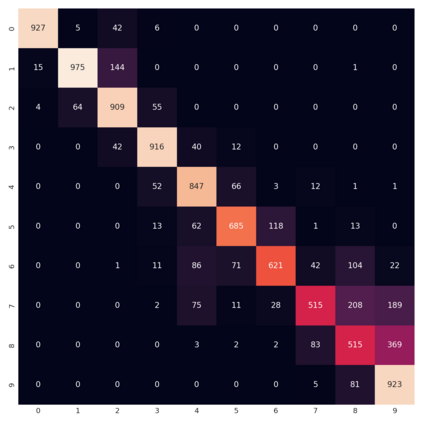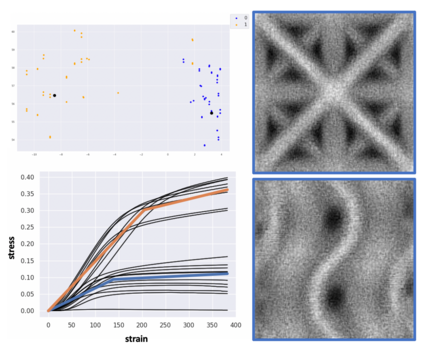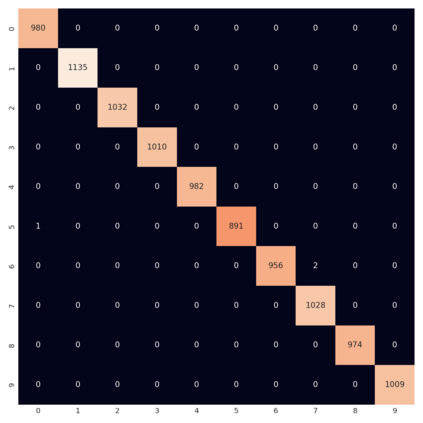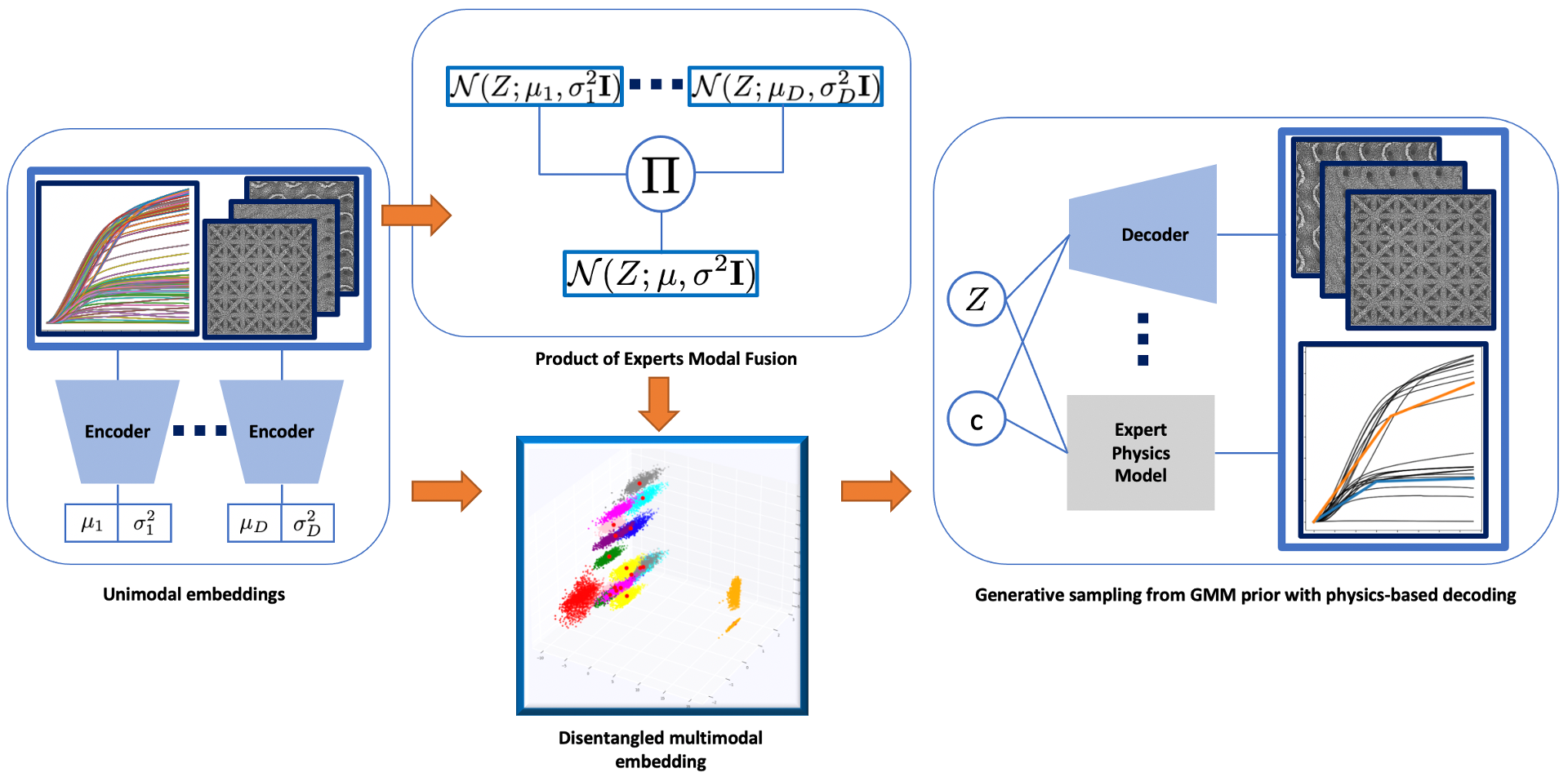We introduce physics-informed multimodal autoencoders (PIMA) - a variational inference framework for discovering shared information in multimodal scientific datasets representative of high-throughput testing. Individual modalities are embedded into a shared latent space and fused through a product of experts formulation, enabling a Gaussian mixture prior to identify shared features. Sampling from clusters allows cross-modal generative modeling, with a mixture of expert decoder imposing inductive biases encoding prior scientific knowledge and imparting structured disentanglement of the latent space. This approach enables discovery of fingerprints which may be detected in high-dimensional heterogeneous datasets, avoiding traditional bottlenecks related to high-fidelity measurement and characterization. Motivated by accelerated co-design and optimization of materials manufacturing processes, a dataset of lattice metamaterials from metal additive manufacturing demonstrates accurate cross modal inference between images of mesoscale topology and mechanical stress-strain response.
翻译:我们引入了物理知情多式联运自动编码器(PIMA),这是一个在代表高通量测试的多式科学数据集中发现共享信息的变推论框架;个别模式被嵌入一个共同的潜在空间,并通过专家配方的产物结合而成,使高斯混合混合物在确定共同特征之前能够确定共同特征;从组群中取样可以进行跨模式的遗传模型,由专家解码器混合而成,对先前的科学知识进行感化偏差编码,对潜质空间进行结构分解;这一方法能够发现在高维多维的多元数据集中可探测到的指纹,避免与高不动度测量和定性有关的传统瓶颈;受材料制造过程的加速共同设计和优化的驱动,金属添加剂制造中立式元材料数据集显示了介质图像与机械压力压力压力压力调节之间的准确交叉模式推断。

